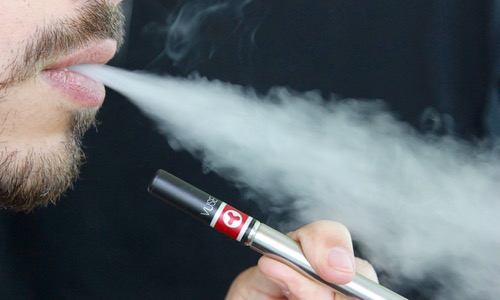While there is plenty of information out there, some people — especially young people — don’t understand the health risks involved with e-cigarettes, including nicotine addiction.
That’s the story to explore here. School officials, health researchers, and government agencies are part of a growing chorus raising the alarm about vaping, which is a product intended for adults who want to quit smoking. In 2016, vaping affected two million middle school and high school students, according to the Food and Drug Administration (FDA), and their numbers are growing.
Business reporters can look into one or more of the following angles to report this urgent story.
Why is vaping on the rise?
Some young people have interpreted the product’s marketing message — that vaping can help adult smokers quit — to mean that vaping won’t harm them or get them addicted to nicotine. A new generation of e-cigarette devices, which are battery-operated devices shaped like cigarettes, makes it easy for students to hide their behavior while attending class. Check out this vaping device from market leader Juul, which looks like a tiny, thumb-sized flash drive.
Contact Ashley Gould at Juul and Gregory Conley of the American Vaping Association. Then reach out to school officials, and especially staff who run substance abuse programs that now include vaping in their crisis outreach. Gain their trust so you can interview students who vape, to the heart of this story.
What are the health risks of vaping?
Plenty. Growing research shows that vaping can lead youth to try smoking, which is the single largest, preventable cause of disease and death in the U.S.
Although e-cigarettes are considered safer than traditional cigarettes, they still contain nicotine and toxins that can lead to long-term health conditions, note these two eye-opening backgrounders, one from the National Center for Health Research, and one from cancer.net, the website of the American Society of Clinical Oncology.
It can take 15 to 20 years to fully assess the health impact of a new health product. E-cigarettes only became readily available in the United States in 2006.
What state regulations exist on vaping?
In August 2016, the FDA finalized a rule to regulate all tobacco products, including e-cigarettes. In May 2018, a second rule is set to become law, to further regulate and restrict the product for those under 18.
Look into the regulations in your state and ask how officials are working to protect society’s most vulnerable citizens. Is your state one of those opposing federal intervention? Also search for any manufacturers and vaping businesses in your local area, or state, to hear their point of view.











